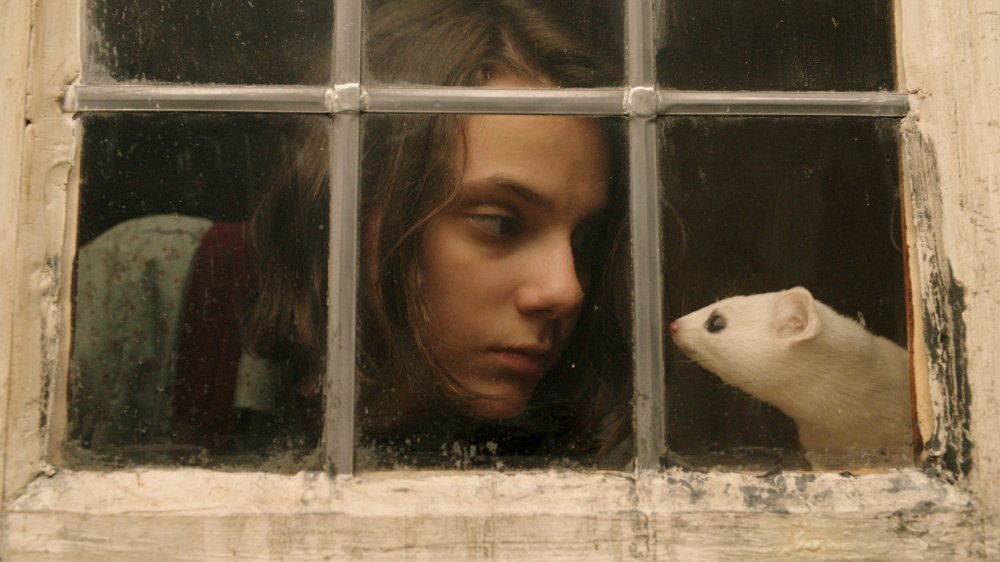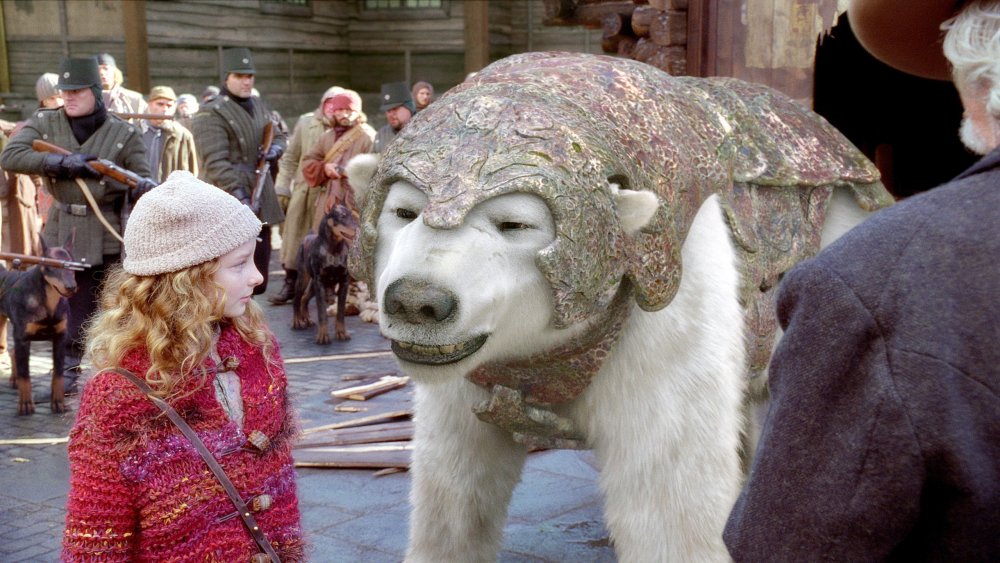The Near-Death Scare That Inspired HBO's His Dark Materials Series
Any film director, television show developer, novelist, or even comic creator will tell you that something — however small — inspired their work. When it comes to HBO's new series His Dark Materials, that something was one severely distressing flight.
In an interview with The Los Angeles Times, His Dark Materials executive producer Jane Tranter revealed that a terrifying experience while flying was behind her push to bring Philip Pullman's popular fantasy novel series to the small screen.
The incident happened around five years ago while Tranter was on a flight from Los Angeles to New York. That's when a "terrible silence" fell over the passengers as the plane suddenly began to lose altitude. As Tranter tells it, the pilots jumped into action and prepared to make an emergency landing in Chicago. Tranter became emotionally overwhelmed, too afraid even to "take out photographs of the children to look at" or complete the emails she was in the middle of writing.
Instead, she turned to her Kindle. To comfort herself, Tranter began reading the end of Pullman's The Amber Spyglass, the final book in the best-selling His Dark Materials trilogy.
"The books are so spiritual, and they have got so much to say about our human mortality and what death means and separation," Tranter said. "It took me to another world."
The experience convinced Tranter to follow up on the rights of Pullman's books — a curiosity that led her straight to the offices of New Line Cinema. The studio had already attempted to adapt the books to film in 2007, but ultimately dropped those plans after the first installment, The Golden Compass, underperformed. The Twilight Saga: New Moon director and Rogue One: A Star Wars Story writer Chris Weitz helmed and wrote the Pullman adaptation, which cost the studio $180 million to make but only earned around $70 million domestically and another $300 million internationally.
The risk of making another His Dark Materials adaptation
The Golden Compass also faced hurdles beyond its ability to draw audiences. Based in another world, Pullman's fantasy follows how one young girl's quest to locate her kidnapped friend leads her into the dangerous plot of a secret organization. While many of its themes are pretty standard within epic fantasies, Pullman's books were a criticism of Christianity and the Catholic Church. As a result, they — along with its film counterpart — became the subject of intense debate and scrutiny by some religious audiences. New Line attempted to curb some of this reaction to the film by watering down the religious analogy, but other critics and audiences seemed to think that decision hurt more than it helped the narrative.
The story was so controversial that in the year after the film's shaky release, The Golden Compass landed in the American Library Association's list of top 10 books individuals and organizations attempted to have banned in the United States.
Despite that less-than-stellar box office turnout and the surrounding controversy, Tranter convinced the studio executives that Pullman's fantasy could live again on the small screen. She and the rest of the His Dark Materials team were able to persuade not only New Line executives that the television adaptation it was worth the risk, but also several high-profile stars — including James McAvoy, Lin-Manuel Miranda, and Ruth Wilson. It's a win Tranter attributed to another popular HBO adaptation, which helped make the case that an elaborate fantasy like Pullman's could both be done and be well-received.
"Game of Thrones really did that job for me," Tranter said.
Not many movies that struggle at the box office get a second chance on the small screen. Like the handful that have — including The Mortal Instruments, Watchmen, and, at one point, The Divergent trilogy — HBO's His Dark Materials had an unfortunate story behind it. The commercial failure of The Golden Compass combined with intense controversy to create the perfect recipe for disaster, and it's little wonder why no one wanted to touch the property thereafter. Tranter took a risk with His Dark Materials, and it seems that her leap of faith and the terrifying experience she lived through that inspired the project paid off in kind, as response to the small-screen adaptation has been wonderful thus far.
Holding an 84 percent critical rating and a 92 percent audience score on Rotten Tomatoes, His Dark Materials is being praised for its "visual splendor and exceptional performances" that "deftly capture the essence of Philip Pullman's seminal novels." One critic even wrote that the show is "proof that TV is now the best medium for bringing epic literary fantasy to the screen." We bet Tranter is happy to hear that.

